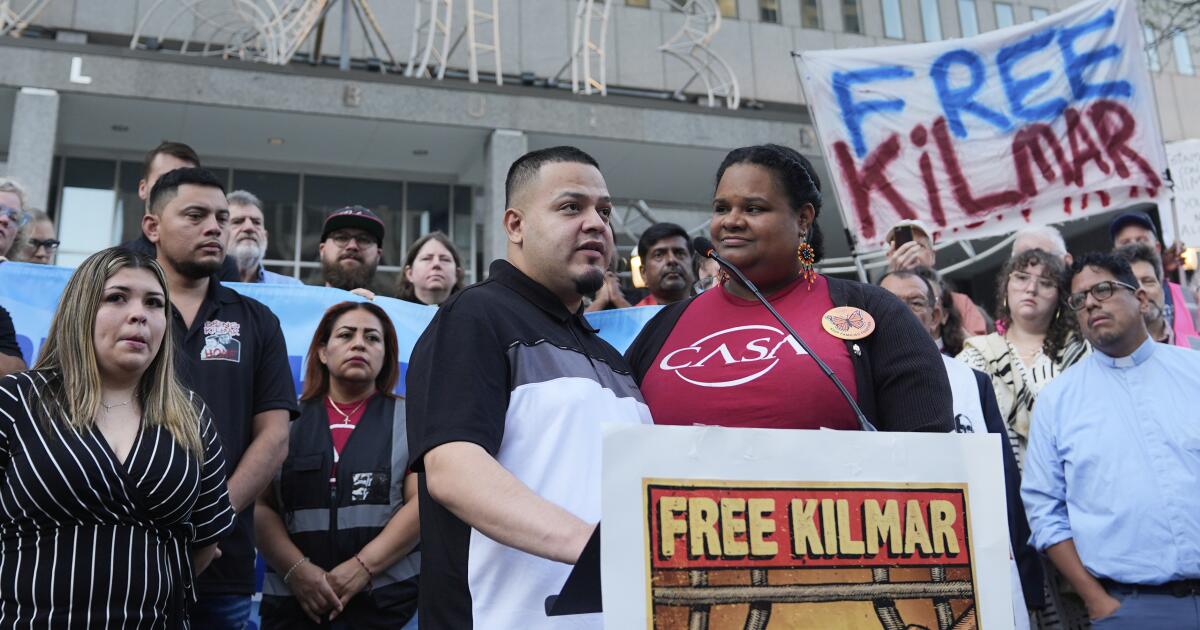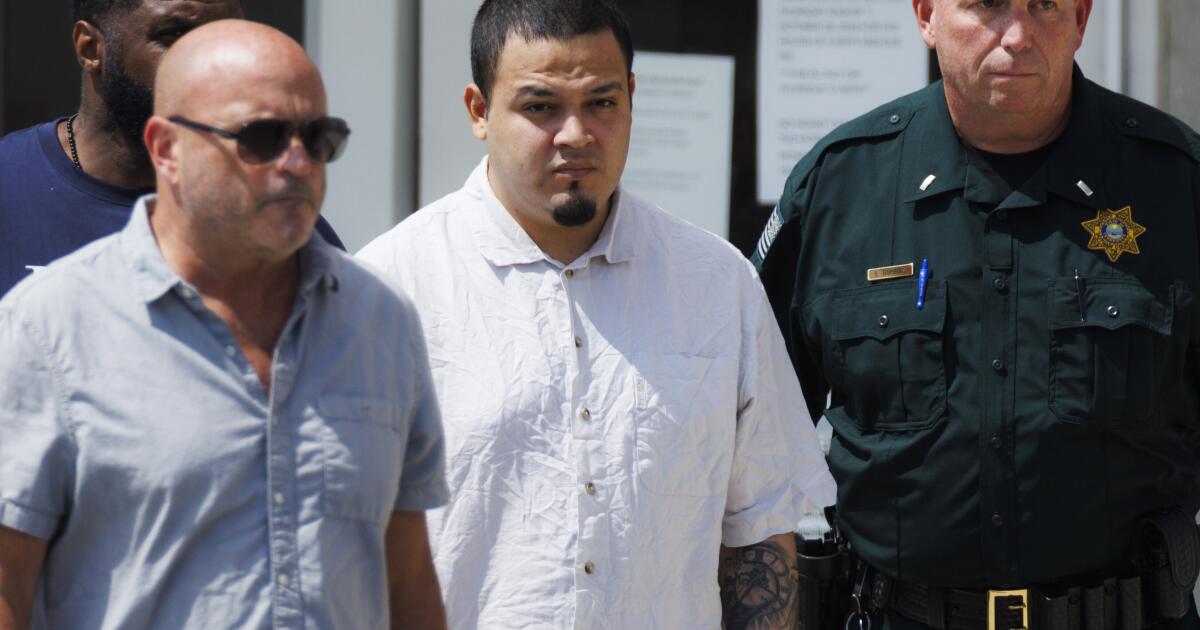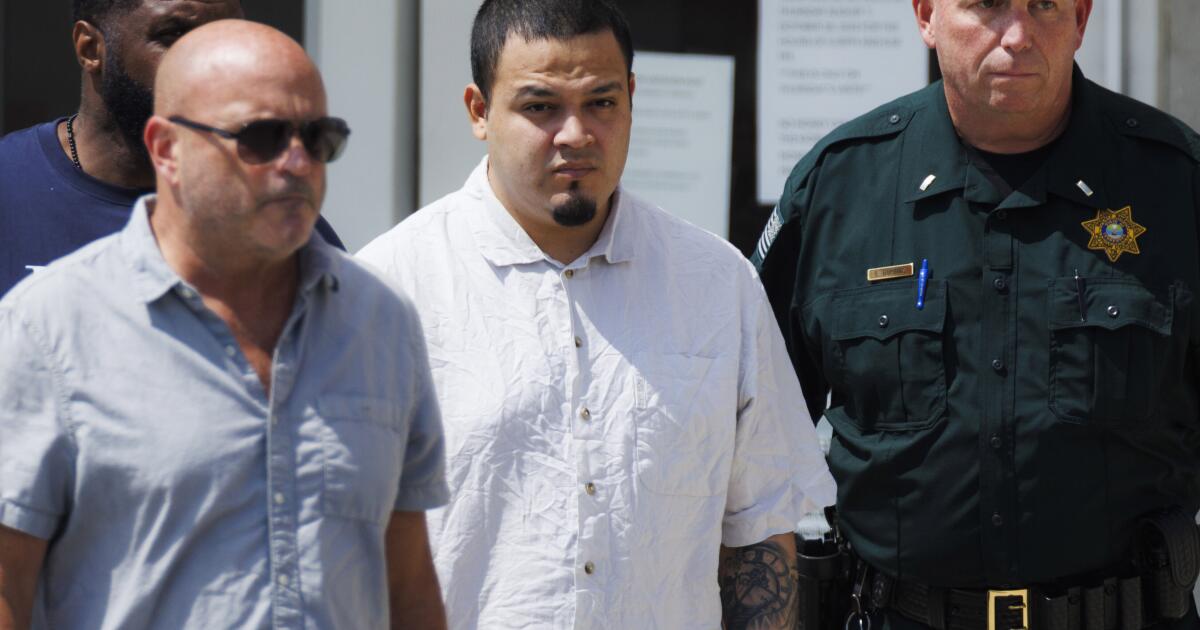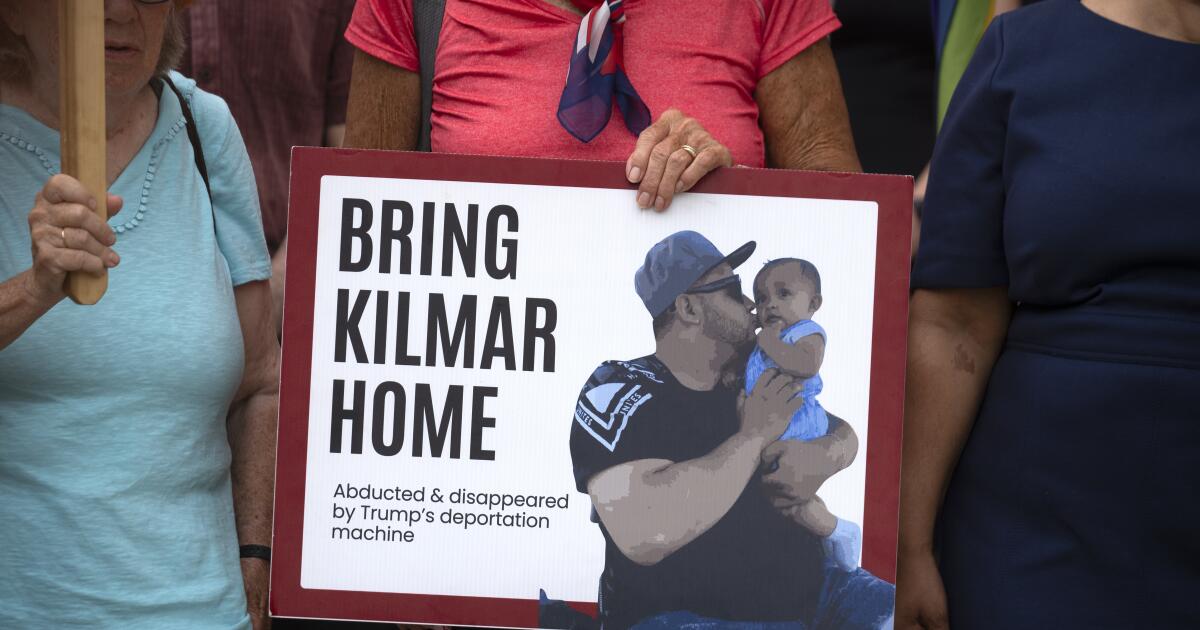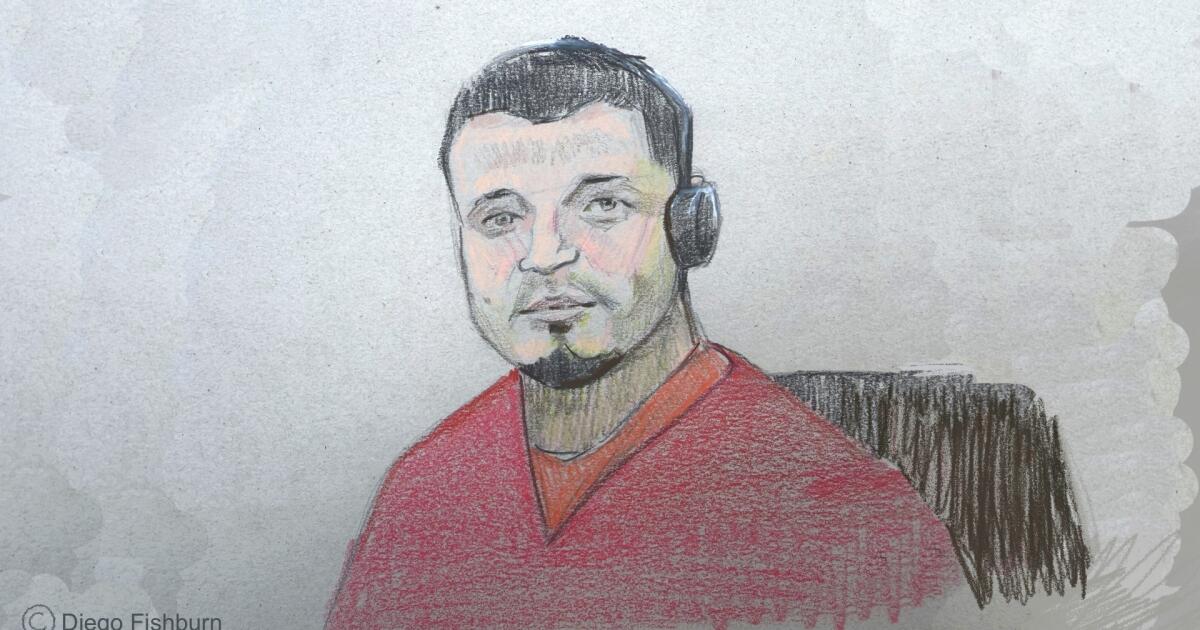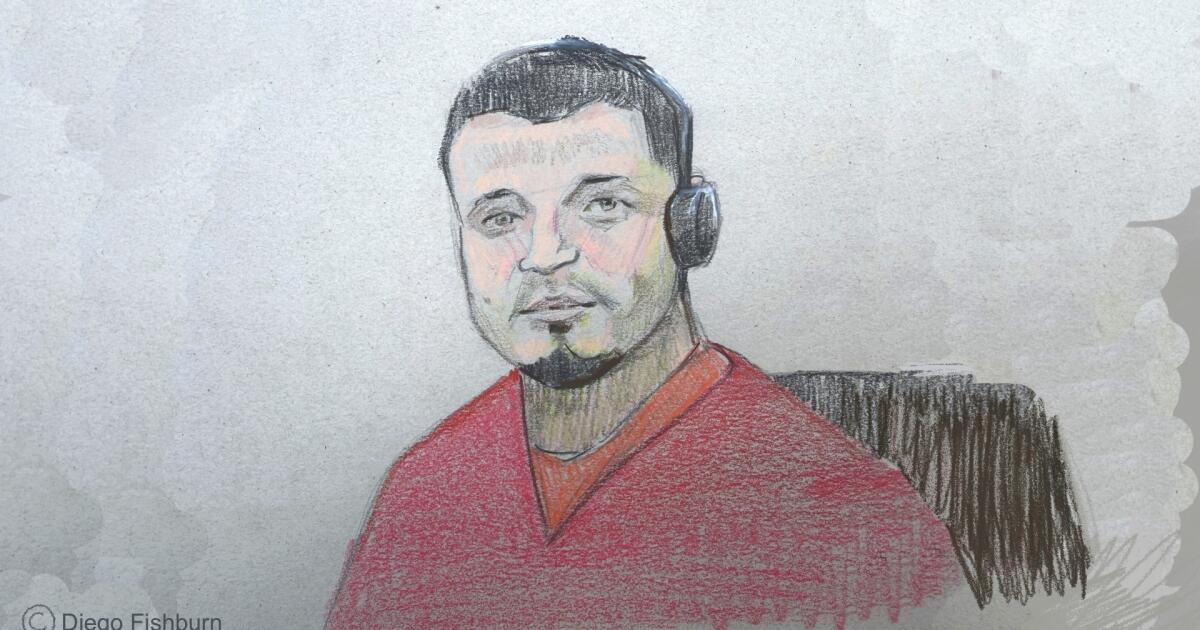Wrongfully deported to El Salvador once, Maryland man faces removal to Uganda
BALTIMORE — Kilmar Abrego Garcia, whose case has become a flash point in President Trump’s aggressive effort to remove noncitizens from the U.S., was detained by immigration authorities in Baltimore on Monday to face renewed efforts to deport him after a brief period of freedom.
Abrego Garcia’s attorneys quickly filed a lawsuit to fight his deportation until a court has heard his claim for protection, stating that the U.S. could place him in a country where “his safety cannot be assured.”
The lawsuit triggered a blanket court order that automatically pauses deportation efforts for two days. The order applies to immigrants in Maryland who are challenging their detention.
Within hours of Abrego Garcia’s detention, his lawyers spoke with Department of Justice attorneys and a federal judge in Maryland, who warned that Abrego Garcia cannot be removed from the U.S. “at this juncture” because he must be allowed to exercise his constitutional right to contest deportation.
U.S. District Judge Paula Xinis said that overlapping court orders temporarily prohibit the government from removing Abrego Garcia, and that she would extend her own temporary restraining order barring his deportation.
Drew Ensign, a Justice Department attorney, told the judge that he understands Abrego Garcia’s “removal is not imminent” and that the process often takes time.
Crowd yells ‘shame!’
Abrego Garcia, a 30-year-old Maryland construction worker and Salvadoran national, spoke at a rally before he turned himself in.
“This administration has hit us hard, but I want to tell you guys something: God is with us, and God will never leave us,” Abrego Garcia said, speaking through a interpreter. “God will bring justice to all the injustice we are suffering.”
About 200 people gathered, prayed and crowded around Abrego Garcia while he walked into the offices for U.S. Immigration and Customs Enforcement in Baltimore, where he was detained. When his lawyer and wife walked out without him, the crowd yelled, “Shame!”
Homeland Security Secretary Kristi Noem posted on X that Abrego Garcia was being processed for deportation. U.S. Atty. Gen. Pam Bondi told Trump during a meeting in the Oval Office that Abrego Garcia “will no longer terrorize our country.”
Brief reunion with family
Abrego Garcia lived in Maryland for years with his American wife and children and worked in construction. He was wrongfully deported in March to a notorious prison in his native El Salvador because the Trump administration believed he was a member of the MS-13 gang, an allegation that Abrego Garcia denies.
His removal violated an immigration judge’s 2019 ruling that shielded him from deportation to his native country because he had “well-founded fear” of threats by a gang there.
Abrego Garcia’s wife sued to bring him back. Facing a U.S. Supreme Court order, the Trump administration returned him in June. He was subsequently charged in Tennessee with human smuggling. He has pleaded not guilty and asked a judge to dismiss the case on ground of vindictive prosecution.
The allegations stem from a 2022 traffic stop in Tennessee for speeding. Abrego Garcia was driving with nine passengers in the car, and officers discussed among themselves their suspicions of smuggling. He was allowed to continue driving with a warning.
The Trump administration has said it wants to deport Abrego Garcia before his trial, alleging he is a danger to the community and an MS-13 gang member.
A federal judge in Tennessee determined that Abrego Garcia was not a flight risk or a danger. He was released from jail Friday afternoon and returned to his family in Maryland.
Video released by advocates of the reunion showed a room decorated with streamers, flowers and signs. He embraced loved ones and thanked them “for everything.”
What’s next?
Federal officials argue that Abrego Garcia can be deported because he came to the U.S. illegally and that the immigration judge’s 2019 ruling deemed him eligible for expulsion, just not to his native El Salvador.
Attorney Simon Sandoval-Moshenberg told reporters Monday that Abrego Garcia is being held in a detention facility in Virginia. His lawyers don’t know when he’ll have a reasonable-fear interview, where he can express fears of persecution or torture in the country the U.S. wants to send him. Officials have said it’s Uganda.
Abrego Garcia’s attorneys have raised concerns about human rights abuses in Uganda as well as his limited ability to speak English in a country where that’s the national language. But there are also unanswered questions about whether he could be imprisoned or sent on to El Salvador. A judge blocked the U.S. from sending Abrego Garcia back in 2019 because he faces credible threats from gangs there.
Uganda recently agreed to take deportees from the U.S., provided they do not have criminal records and are not unaccompanied minors.
“We don’t know whether Uganda will even let him walk around freely in Kampala or whether he’ll be inside of a Ugandan jail cell, much less whether they are going to let him stay,” the attorney said.
If immigration officials determine that Abrego Garcia lacks a reasonable fear of being sent to Uganda, he should be able to ask a U.S. immigration judge to review that decision, Sandoval-Moshenberg said. And if the immigration judge upholds the determination, Abrego Garcia should be able to bring it to the U.S. Court of Appeals.
Sandoval-Moshenberg said that’s the process when someone is slated for deportation to their native country. And he said it should be for third-country deportations as well.
“This is all so very new and unprecedented. … We will see what the government’s position on that is,” he said.
Abrego Garcia informed ICE over the weekend that Costa Rica was an acceptable country of removal because he had “received assurances from Costa Rica that they would give him refugee status, that he would be at liberty in that country, and that he will not be re-deported onto El Salvador,” his lawyer said.
“Costa Rica is not justice,” Sandoval-Moshenberg said. “It is an acceptably less-bad option.”
The notice to ICE about Costa Rica was separate from an offer made by federal prosecutors in Tennessee to send Abrego Garcia to the Central American nation in exchange for pleading guilty to human smuggling charges. Abrego Garcia declined the proposal.
Witte, Loller, Kunzelman and Finley write for the Associated Press.
